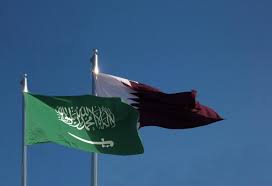By Nigel Dudley
June 8 – President Trump hailed the decision by the Gulf states to isolate Qatar as the “end of terrorism” – and indeed was keen to take much of the credit himself.
And the Saudis, backed by the UAE, Bahrain and Egypt, justified the decision to break off diplomatic, trade and transport links with Qatar by accusing the gas-rich emirate of backing Islamic extremism.
But the situation is much more complex than the tweets, sound bites and headlines might suggest. For each of the major players has a series of conflicting interests and pressures that make any final resolution highly complex.
Take the dilemmas facing the three major powers involved, the US, Saudi Arabia and Qatar.
Saudi Arabia, ultimately the only Gulf state that really matters because of its size and wealth, has just re-established its position as the chief American ally in the region following President Trump’s recent visit – this culminated in the decision to buy $110 billion of arms from the US.
President Trump has taken a noticeably more supportive line to Saudi Arabia than his predecessor President Obama and the neo-cons who, under President Bush, kept pressing the Riyadh government to introduce democracy – that pressure is seems largely lifted.
However, there is a potential point of conflict. Saudi Arabia is still threatening to pull $750 billion in US assets if the Congress passes a bill making the Riyadh government liable for 9/11-related lawsuits.
If this happens, President Trump would be caught between facing a dispute with his new ally in the war against terror and taking on Congress over a measure that has wide popular support – moreover the President would appear to be on the side of a country which many in the US blame for 9/11.
President Trump also faces dilemmas in his dealings with Qatar. The US and Saudi Arabia may have a mutual hostility to Qatar’s apparent ally Iran, but there is a massive American military base near Doha. If that were to close US military operations in the region would be seriously hampered.
Ultimately this is a matter of regional politics. If there is one word that has epitomised Saudi policy for the last two generation it is control – over what happens in the Kingdom, over its currency and regional security.
It has remained the dominant force of the Gulf organisation of six states, which also includes the UAE, Oman, Qatar, Kuwait and Bahrain; in other words, without, Riyadh’s approval, nothing happens.
It has become increasingly angry about Qatar’s support for the Muslim Brotherhood, which, with its peculiar brand for populist fundamentalism, held power in Egypt for a brief period.
The desire of Qatar to strike an independent line, has strained relations as much as any Saudi concern about terrorism, other than that which threatens its own country.
Conflict between Qatar and Saudi Arabia is nothing new. For years there have been border squabbles that have led to the ebb and flow of diplomatic relations – but usually the conflicts have been resolved after a few months of posturing.
Will it be different this time or will it threaten the World Cup?
There is plenty of time before 2022. But there are a couple of factors that make this a more difficult crisis to resolve.
First there is an American president who seems happy to wade into a complex dispute with simple answers – a stark contrast to the way the State Department has tried to play down the dispute.
Secondly, there are the two young men who really matter. Qatar’s ruler since 2013, Shaikh Tamin, has tried to define a more independent policy for his country.
In Saudi Arabia, arguably the most powerful figure is the deputy crown prince Mohammed bin Salman, who wants to introduce controversial major internal reforms in the Kingdom. One thing that would destroy his credibility and limit his ability to make changes is making any concessions on is Saudi Arabia’s domination of regional Arab politics.
So, weighing the different pressures in this conflict it is hard to see any other solution than one which limits Qatar’s freedom to run policies that directly conflict with Riyadh.
The art will be to devise a settlement that does not make the defeat too humiliating.
Nigel Dudley is a journalist specialising in Middle Eastern politics. He can be contact at moc.l1751492850labto1751492850ofdlr1751492850owedi1751492850sni@o1751492850fni1751492850

